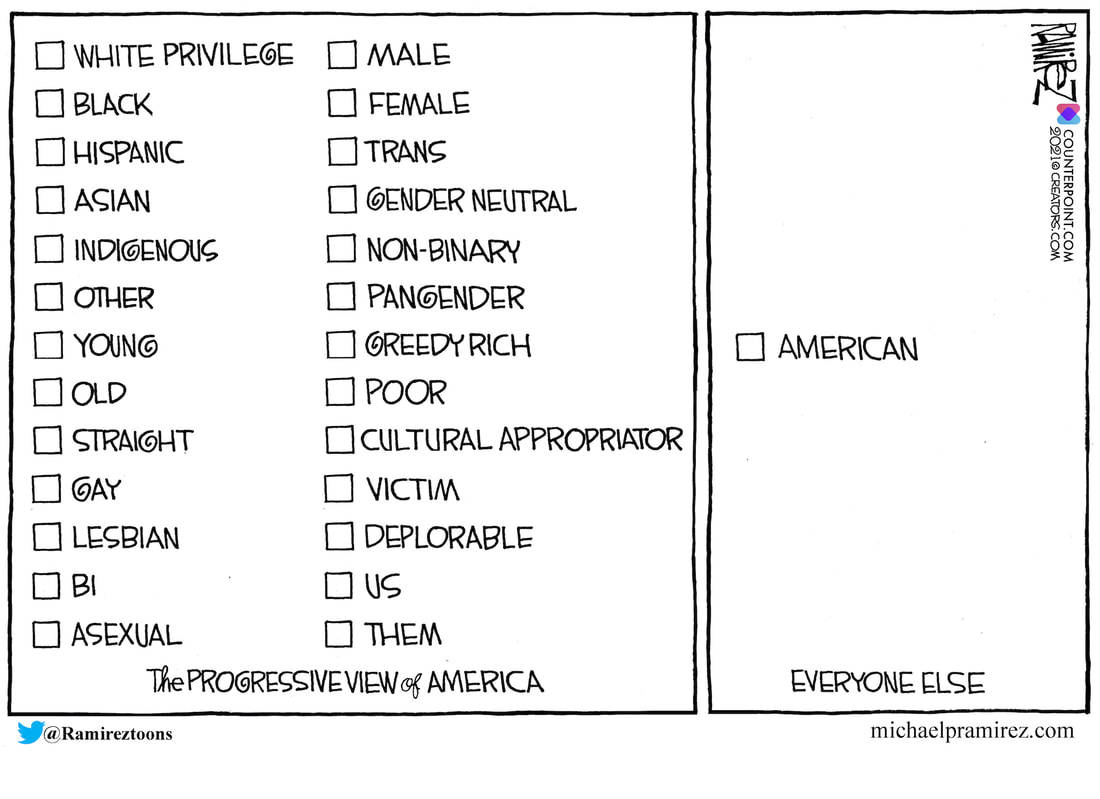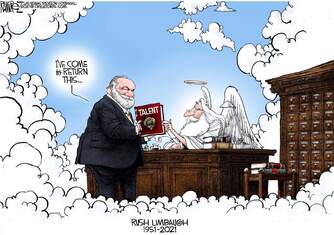Welcome to the official home and wonderful world of America's premiere editorial cartoonist, Pulitzer Prize winner Michael P. Ramirez, daily contributor to the Las Vegas Review Journal
04-26-21 Creating Division in AmericaIdentity politics may advance the far left’s radical agenda, but it divides the country and undermines the spirit of America: “E Pluribus Unum,” out of many, one.
Contributed by Sam Jacobs:
Cultural Marxism's Origins: How the Disciples of an Obscure Italian Linguist Subverted America Ammo.com You may have heard the terms “Cultural Marxism,” “Critical Theory” or “Frankfurt School”bandied about. And while you might have an intuitive approximation of what these terms mean for America in the 21st century, there’s a good chance that you don’t know much about the deep theory, where the ideology comes from, and what it has planned for America – and the world. The underlying theory here is a variant of Marxism, pioneered by early-20th-century Italian Marxist politician and linguist Antonio Gramsci. Gramscian Marxism is a radical departure from Classical Marxism. One does not need to endorse the Classical Marxism of Marx, Engels and others to appreciate the significant differences between the two. He is easily the most influential thinker that you have never heard of. Marx's original idea was that Communism was a historical inevitability, an evolutionary transition that would lead to a bottom-up eruption of revolutionary violence sparked by the Proletariat’s frustration and fury over having been used and abused by the Bourgeoisie for long enough that “the revolutionary subject” (Marx’s term for the broad working class) would overthrow capitalism and usher in socialism. Gramsci, on the other hand, held that such a revolution was unlikely – particularly in the West, where general prosperity and the lassitude of relative contentment would tend to dull the working class’ passion for a bloody, bothersome overthrow. In successful Western nations, a Marxist state was far more likely to develop through a slow, patient process of incrementalist takeover of the cultural institutions – the arts, entertainment, and news media, and most especially the schools and universities. As such, the weapon to be used for revolution was not the economic might of an organized working class, but a “long march through the institutions” (a phrase actually coined by German Marxist Rudi Dutschke), whereby every institution in the West would be subverted through penetration and infiltration. For Gramsci, culture was more important than either economics or politics. read the rest here |
Sidestep the search engine gulag and stay up to date with the best news and opinion from our favorite websites:
Power Line Blog
American Greatness Lucianne RealClearPolitics InstaPundit Federalist Ricochet Gateway Pundit |



